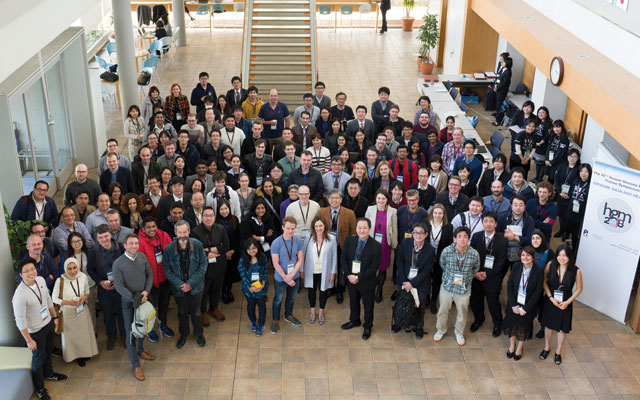Money was the biggest challenge, as the meeting sought to support 30 speakers and a low registration fee to attract young researchers
The decision to host the Human Genome Meeting 2018 in Yokohama, Japan was made in 2016, allowing the port city to beat fellow contenders Tokyo and Chiba.
Chair of the 2018 organising committee, Piero Carninci, recalled that competition was “very tough” as all three cities were willing and ready to provide financial support.

Carninci, who is also deputy director of the RIKEN Centre for Integrative Medical Science, said that Yokohama was eventually chosen because the city’s main convention centre, Pacifico Yokohama Convention Centre, was “ready to provide us with a discount”.
Furthermore, the research institute of RIKEN Centre for Integrative Medical Science was also located in Yokohama, and the committee wanted meeting delegates to visit the facility.
Other winning points included excellent travel links provided by trains into central Tokyo and by air for overseas attendees, as well as numerous accommodation options and entertainment for post-conference programmes.
Delegates got to spend one memorable evening dining and relaxing at the city’s waterfront Manyo Club onsen, which gave them “a full Japanese experience that most were usually not able to try”, said Carninci.
Although the Human Genome Meeting 2018 was eventually a great success, so much so the organiser of next year’s event expressed concerns about matching the high standards set by this year’s edition, the event did encounter some challenges.
Carninci revealed that the meeting’s biggest hurdle was in financing.
“We needed to cover the costs of 30 guest speakers,” he said.
Adding to the financial strain was the committee’s decision to set a low registration fee to make the meeting more accessible to young researchers, so as to attract as many of the new generation of genome scientists as possible.
To ease the financial burden, the committee sought out sponsors. Some 25 companies stepped in as sponsors for the meeting, individual seminars and lunch events.
Other challenges included the vast scale of the meeting and communication difficulties when working with people from across the world and who speak different languages.
“This is the second major conference I have organised in the last three years,” he said. “The most important thing is that no one should try to organise something of this scale by themselves.”
He added: “You need to create a team of capable individuals, be selective of the people you put into that team, and be sure that each of them is able to do the tasks that they are assigned to.”
Regular feedback, he found, was also critical for the team to know how things were progressing.
Management of the meeting was split between the local organisers – Carninci and his team – and the headquarters of the Human Genome Organisation in Seoul, South Korea.
In terms of communication, Carninci said clear and open communication with all teammates must be encouraged.
“I have learnt to be consistent in messaging to avoid misunderstandings,” he reflected.
“For me, that means not using e-mails so much but picking up the phone or speaking to people face-to-face whenever possible. When you are working with multiple languages, it is important to have people who can speak at least two languages perfectly.”
Event Human Genome Meeting 2018
Organiser Human Genome Organisation
Date March 12-15, 2018
Venue Pacifico Yokohama Convention Center
No. of attendees 463
Challenges Financial strain from having to support 30 guest speakers and facilitating a low registration fee to allow young researchers to access the meeting; sharing event management duties; clear communication across different languages











